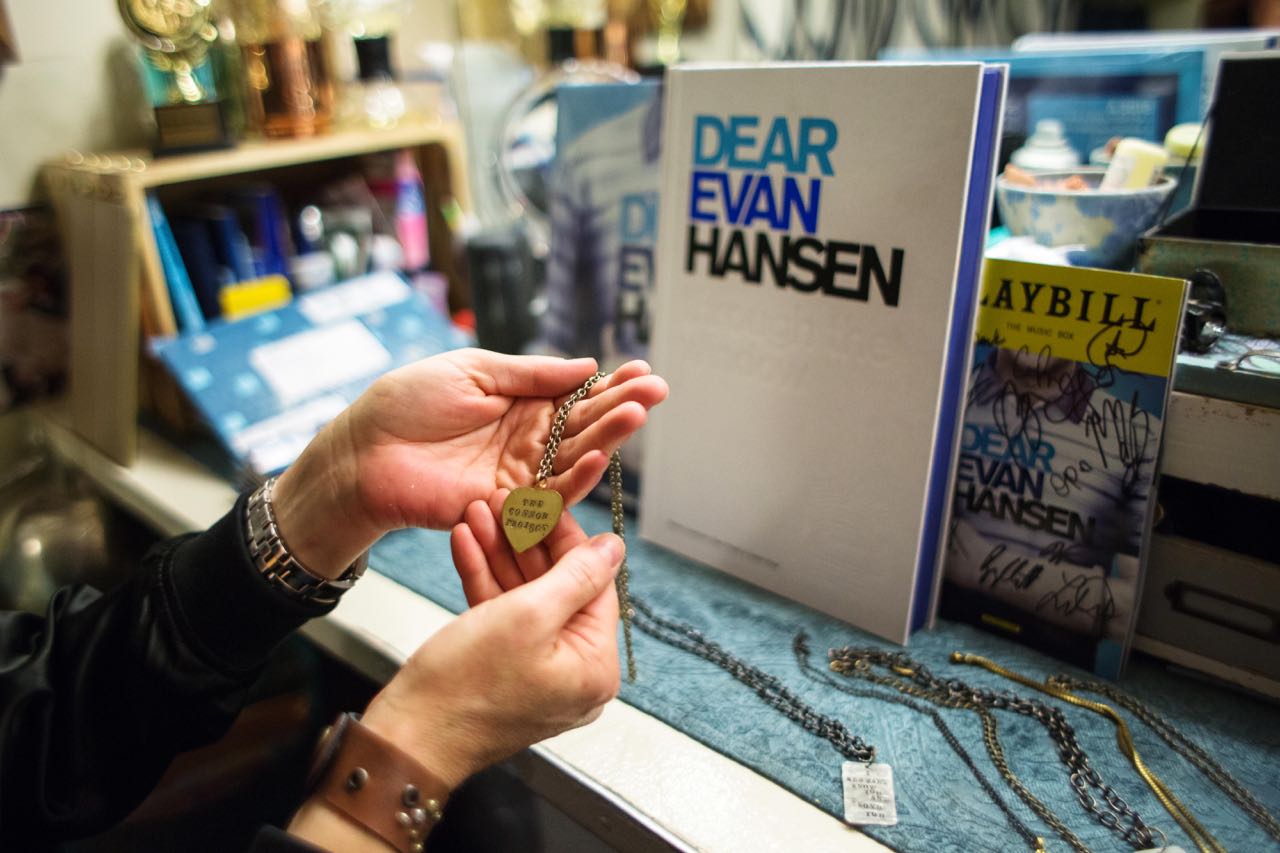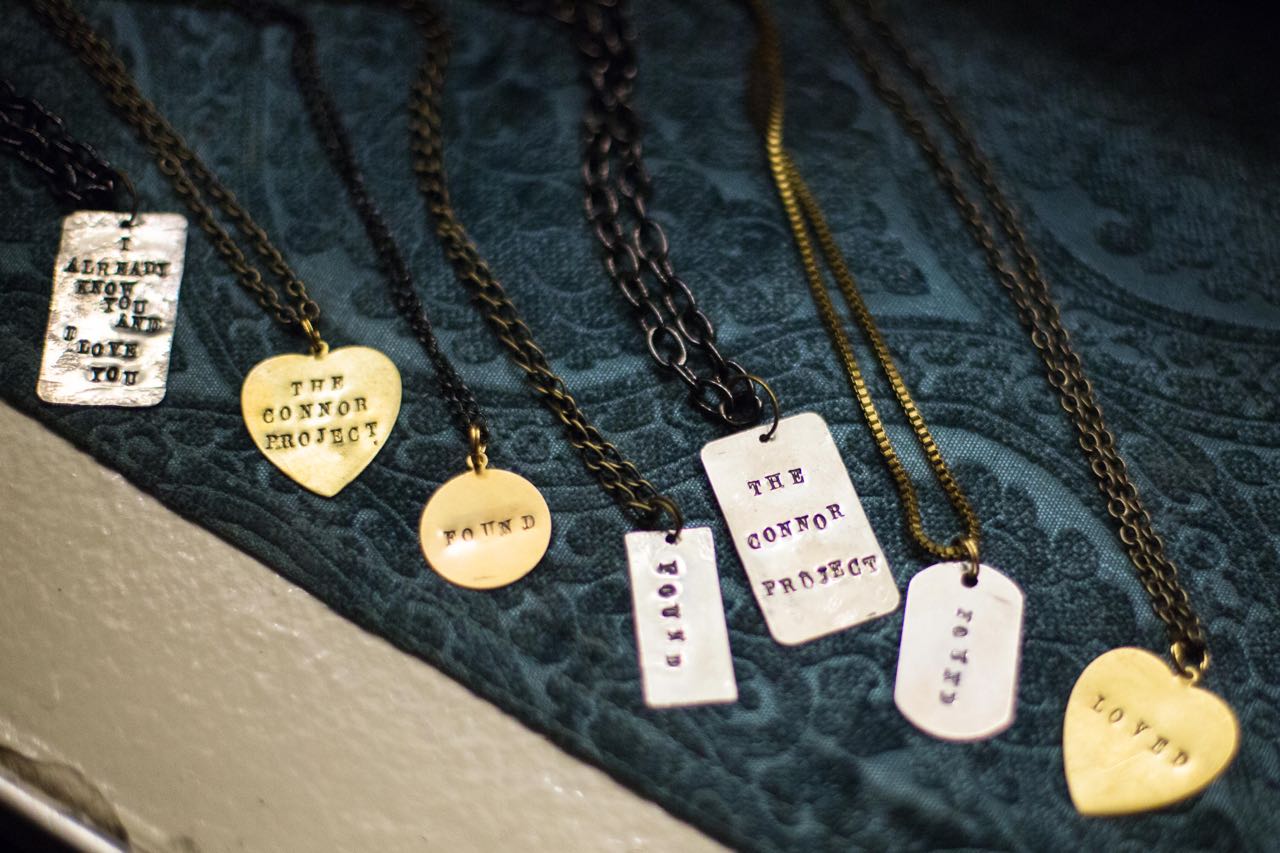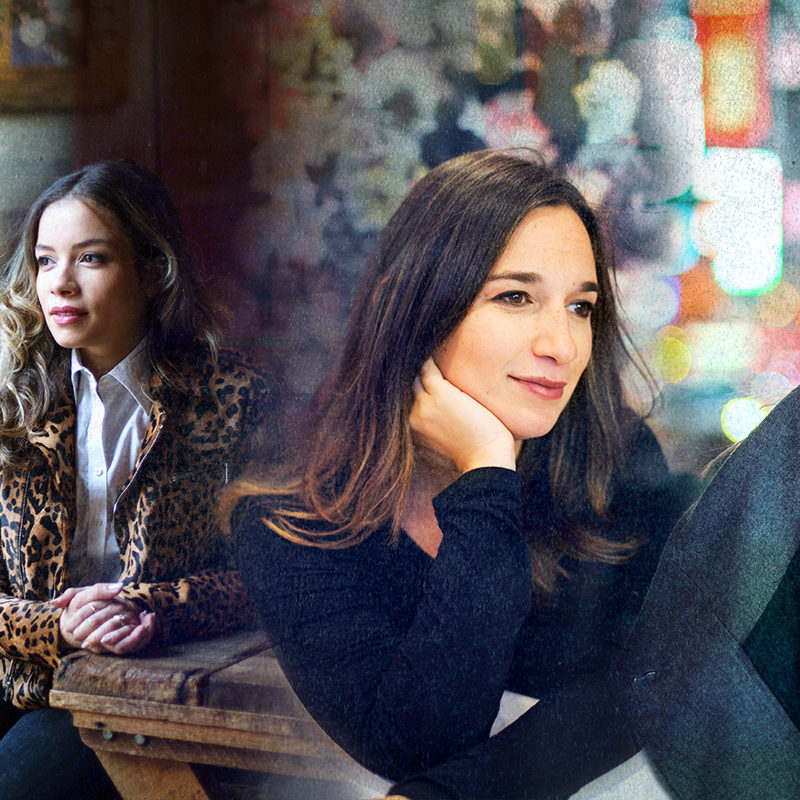Ladies Who Launch: Four Actresses Who Started Their Own Businesses
Photography by Tess Mayer
December 19th, 2017
A career as an actress can be a strange beast with unconventional hours, uncertainty, and many factors that are out of people’s control. It can also be a lot like running a small business. We’ve all heard about actresses with day jobs and side gigs, but there’s also a group of women who have combined their artistic and business skills to create their own businesses in addition to their careers in the theatre. We talked to four of them—Jeanna De Waal, who runs Broadway Weekends, a theatre workshop for adults; Sas Goldberg, who owns Name Glo, a neon sign company; Sydney Morton, who started a party planning business; and Jennifer Laura Thompson, who makes and sells her own jewelry—about their other careers as business women.
Jeanna De Waal
Jeanna has appeared on Broadway in American Idiot and Kinky Boots. She started Broadway Weekends, which offers theatre workshops for adults.
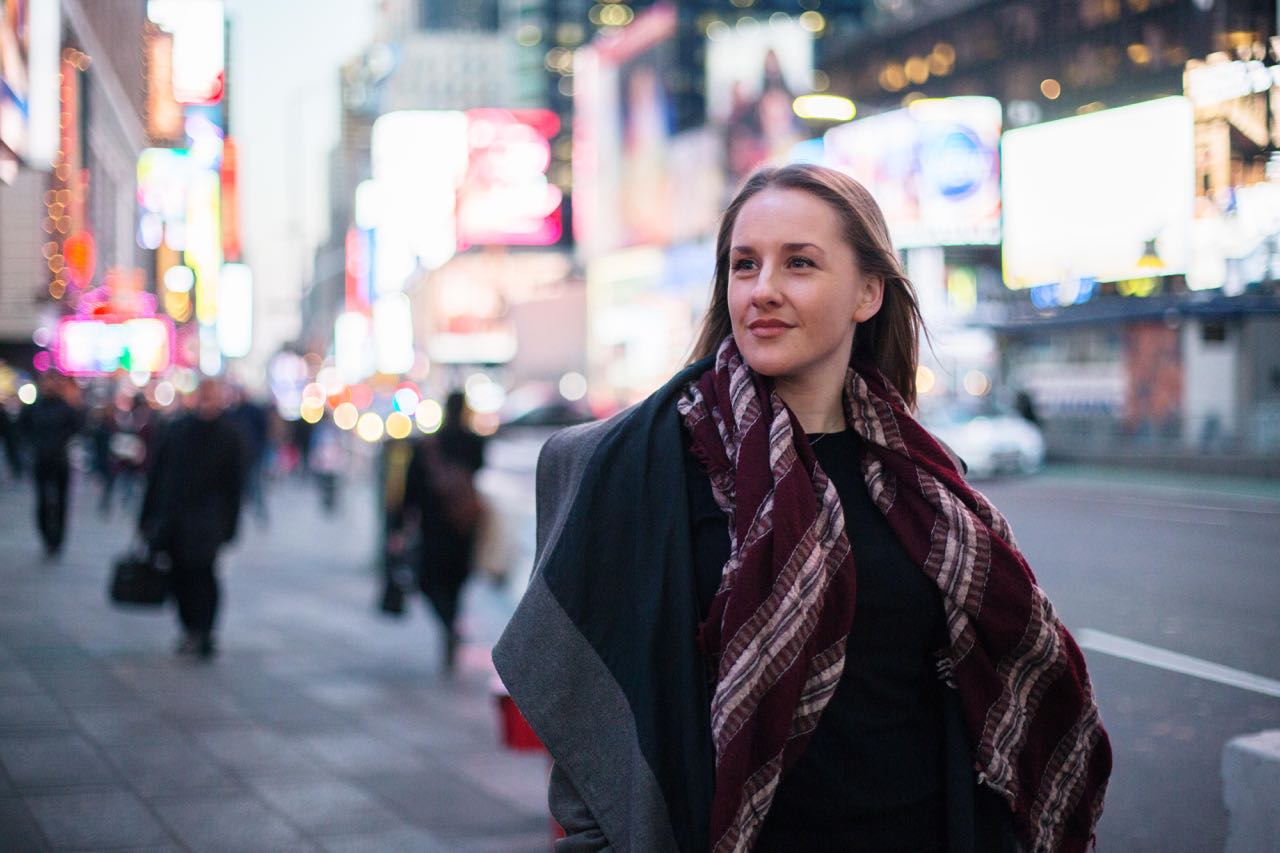
Tell me a little about Broadway Weekends.
Broadway Weekends is the first musical theatre camp for adults. The reason we created it was there are so many people who performed in high school and college, but they no longer perform, and obviously, committing to an amateur dramatic program is a really heavy commitment that sometimes lasts for months. These are very unique, one-off weekends—the shortest we have is two days and the longest we have is five days—where people can get all of their musical theatre love out in one go. The main feature of each weekend is that we stage an ensemble number, which includes learning the music, the staging, and the choreography, and perfecting it, and the rest of the weekend is filled with other classes—dance classes, singing classes, acting classes, depending on the time allotted for the weekend that they’ve chosen.
How long ago did you start it? Was there a moment where you were like “Oh, this could actually be a thing”?
Pretty much last Thanksgiving, I started speaking and thinking about it. I went on vacation with my best friend from college who is a yoga teacher and runs yoga retreats around the world, and she was talking to me about the fulfillment she gets out of it. For me, part of my love of theatre has been in the rehearsal room. There’s such a collaborative ensemble feeling of working as a team to create something. The ways she was describing the reasons she does yoga and how it gives her a release and all that, I was like, “That is something I absolutely feel I get from theatre, and I wonder if there is a place where there’s a group of people who would be interested in doing adult theatre camp.”
I got a few of my best friends who are all in the business and we put up our first one in March, just a one-off, and we went from there. There were people who came, and so we did four last year and then this year, we are going to do five.
I realized it was a thing when we got countless emails on our newsletter—some people have attended and some people are yet to attend—but I think we’ve had close to 600 letters and emails of people writing really long, detailed biographies of what performing meant to them in high school, why they gave it up, what they do now, and it really was very apparent to me that there’s a community out there that still loves to perform just for fun.
As you are growing, what challenges have you encountered?
Our challenge is definitely getting the word out. We have three people returning this year who came last year. We feel once we meet the people and they know what it’s about, we’re creating a community that is returning. I think half the battle is education, because a lot of people think it’s training to be a professional. You hear acting class or singing class, and we really are not that. We specifically are not training people to become professionals. It is very much a vacation—a boutique vacation. I think that is the main thing. Getting the word out, and getting the right word out, so that people understand that it’s for them as opposed to the person that wants to become a professional actor.
How have you found balancing running a business with your career as a performer?
I’m very, very busy every day, but in terms of the two, the acting career and the private business, they actually complement each other very well because they’re so intrinsically linked. I do readings and workshops as an actor and it’s something I can talk to my castmates about and include them. In social atmospheres, it’s something I can talk about. And the same on the other side. With the Broadway Weekends, the more I work in the industry, the more exciting teachers I can bring, the more collaborative I can be with who we’re using on the weekends. They really go hand in hand, and that’s a thing we’re really adamant about. This is a chance to work with working Broadway professionals.
How do you want to grow in the coming year? Two years? Five years?
What we really want to become in the short term is a must-do if you love theatre and you love performing. Like, “Oh you’re going to Broadway to see these shows. You’ve got to fill your days with the Broadway Weekend.” That’s what we want to become in the next few years: a New York theatre must-do. Further down the line, we really think there is room to start collaborating with tours and start doing these regionally. The world is really our oyster, because I feel like once we’ve established the brand then we can go further and reach out to people as opposed to people always having to come to New York. Right now, we’re based here and people have to come here, but eventually we really hope that we can take it out regionally.
What have you found the most fulfilling thing about doing this?
Getting to know the people. I think that’s another thing we’re seeing at the moment. It was the emails that blew me away, and then continuing from that, it’s when the people have actually come to our events, getting to know them, seeing them open up, and then just the cherry on the cake is when they send a lovely email and book another ticket. We had this lovely woman from San Diego who is a research scientist and she was too shy to sing at the last weekend that we had over Labor Day. She just emailed and said, “I’ve been taking singing lessons since then. I’m coming to the next one, have booked, and would like to sing a solo.”
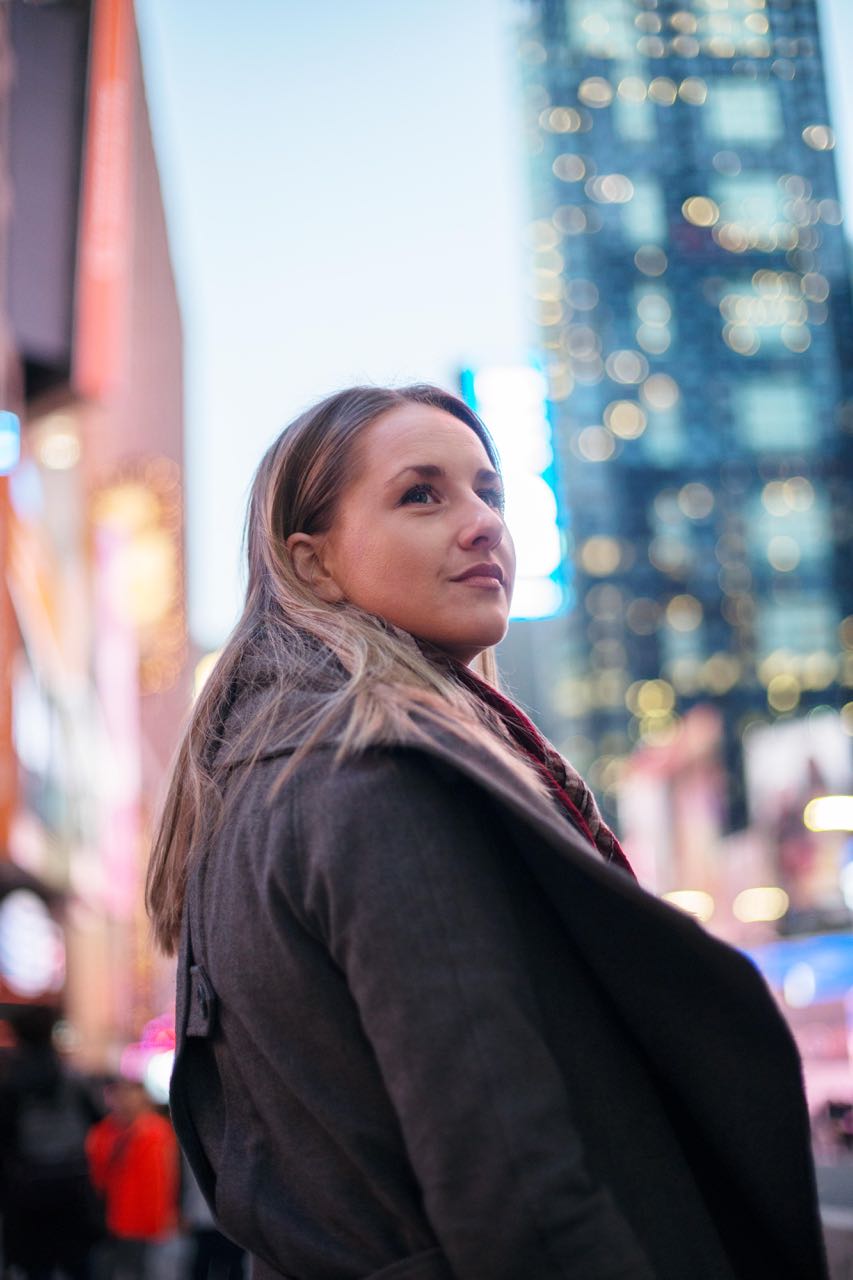
Sas Goldberg
Sas Goldberg was last seen on Broadway in Significant Other. She is the co-owner of Name Glo, which makes customized neon signs.
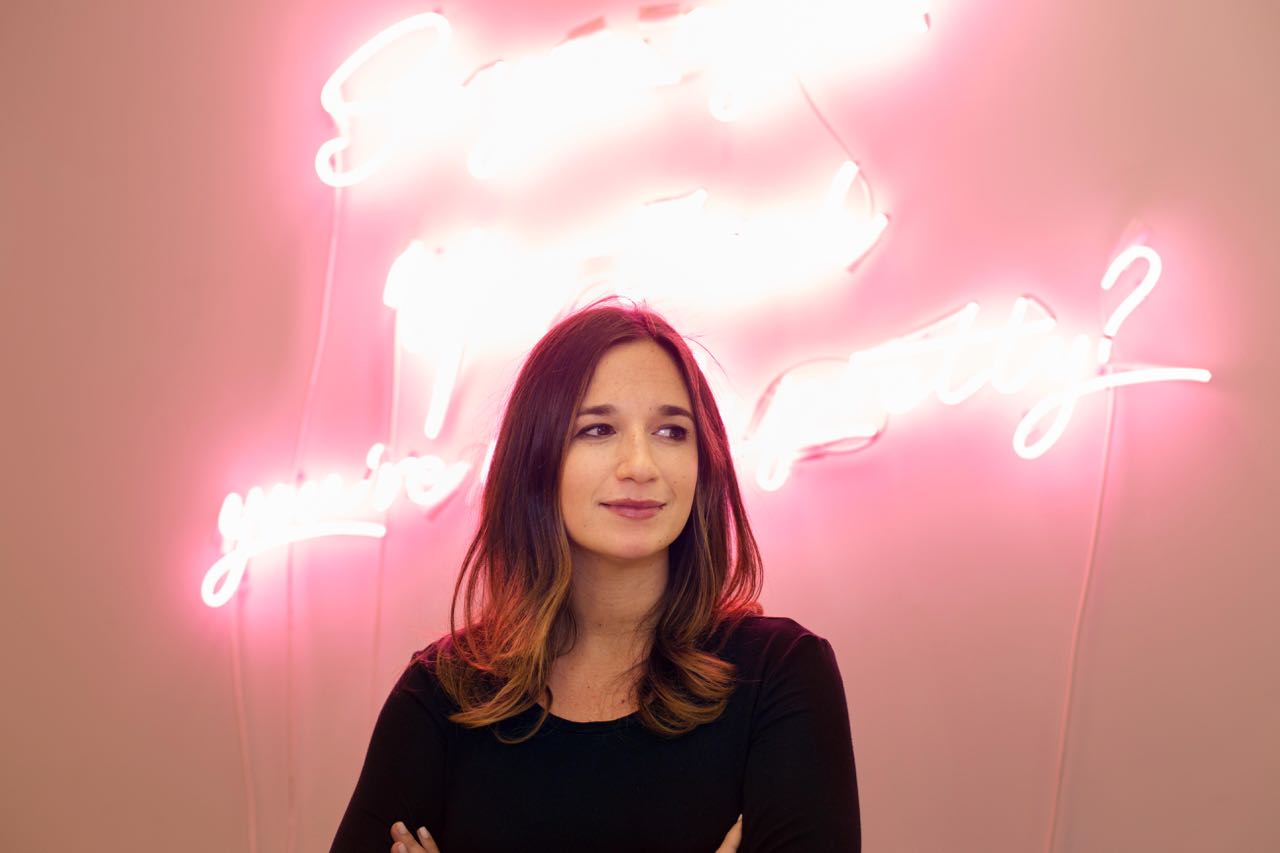
Tell me about Name Glo.
About four years ago now, my brother-in-law and sister-in-law had a baby. I wanted to get them a really unique baby gift. Something totally different. I thought, “What better way to give him something he could have forever other than a neon sign?” I thought that was baby appropriate, and then also it could be really cool as he got older. I googled “New York City neon,” thinking a thousand things would come up. The only thing that really came up was weird HTML websites that looked like they were made in 1993—really hard to navigate, really hard to understand, and I knew nothing about neon, so it’s not like I had a baseline of what to understand. So, for someone who knew nothing, it was really confusing to read all this. Things like transformers and G.I. and cables and things. I didn’t know what the medium was, really. I didn’t know if it was a bulb, or if it was gas, or it was glass. I knew nothing.
I called a few of these places and talked to them. It felt like every time you talked to somebody in the neon world, there was an understanding that you knew something about neon, which I didn’t. So I saw a hole in the market place. Neon’s really big right now, but four years ago it wasn’t part of interior design just yet. I went to the High School for Performing Arts, so I have a lot of friends who are in the arts and not necessarily actors or singers. One of my friends from high school is an artist, and I reached out to her and I was like, “I know you have neon in your apartment. I don’t know if you made or who made it but would you ever be able to design this for me? I know what I want it to look like but I know very little about the actual product.” She was like, “No problem.”
I told her the idea of the font I wanted. She totally got it. She charged me literally a fourth of what the other places were charging me and walked me through the process so I understood it. When I picked it up from her a few weeks later, I was like, “I’m telling you right now, this is a business. This is a hole, it doesn’t exist.” She reached out to me a few weeks later and she said, “Listen, I can do it. I can design it. I’m not exactly sure who the audience is but would you ever want a partner?” I was like, “Sure.” That was four years ago. We officially launched in April of 2016. It’s kind of been gang-busters ever since.
Can you tell me a little bit about the learning curve of running a business?
There’s a huge learning curve. Before I went full time into writing and acting, I helped run a children’s theatre program on the Upper East Side. I had a little bit of experience with sales, which is what I really liked doing. For the most part, it’s a challenge when you own your own business. It’s creating your own hours, carving out your own time, because honestly, I could spend the entire day writing, calling, doing work on behalf of Name Glo. It’s really hard when that’s one part of your life and then another part of my life is that I am a working actor and a writer. You really have to carve out time for yourself because the clock never stops.
The one thing I really try to do at Name Glo is to get the customer experience that I would want and that my partner would want. I think a lot of times, at least in neon, it feels like you’ve got radio silence on the other side. People don’t respond that quickly and they’re dealing with such huge neon signs that your small neon sign for your kid’s nursery is not their priority. We try to be opposite, where it might not be a big sale for that neon place but for the customer, they’re spending a lot of money. It’s not a cheap product. They really want to feel like somebody’s holding their hand through the process, just like I would. We really try to give that one-on-one attention to detail to all of our clients. Hopefully, we succeed with it.
But there’s always a learning curve. Every day is a little bit different. In the beginning, when I first started, I used to get really anxious because in any business, something’s going to go wrong sometimes. Especially when you’re working with something that’s electrical. There’s going to be issues. I used to take that stuff so personally and it would stress me out if there was a problem. Now I’ve learned to compartmentalize it and be like, “We’ll handle it, we’ll figure it out.” But you can’t let it change your entire day because I have other business to do.
What do you wish you had known going into it or what has been the biggest challenge?
One challenge is I don’t think I had anticipated how fast we were going to grow. I knew that it was a good idea and that it didn’t exist. I don’t think I realized how many people would jump on board so early on. When you’re doing huge clients, the stakes get very high, so I don’t think I was necessarily prepared for how fast it was going to grow or how quickly. I’m very thankful that it has grown so fast, but it’s just the two of us right now for the most part. We’re really small, but we are definitely fighting. It was hard when I was in Significant Other. I was writing emails back to clients during intermission. They don’t care if you’re in a Broadway show. Why would they? Actually, most of them don’t even know I’m in a show.
How do you balance this with your career as an actress?
For the most part, I try not to tell people, because I don’t want them to think that it’s this side hustle, because it’s not. It’s something I care about. But it’s hard. You have to squeeze in those moments. My time on the subway going to the theatre was my sacred time because I could be on my phone and write back to emails and things like that. You’re kind of on call 24 hours a day. Someone needs you in one part of your business. If you’re thinking of doing it and you have another line of work, I would say be prepared for how often you will work.
I also love doing it. I love the world of neon. I love the people I’ve been meeting. I love running an all-female business. I like the whole narrative of it. I was on Search Party on TBS and I got a call when Search Party premiered last year from an event planner saying that there’s a Search Party premiere happening and they want a few neon signs, and can we do it? We ended up making the neon for the premiere and they had no idea that I was also in the show. It’s a really great party trick to be like, “Oh, I co-own a neon sign company. People are like, “What?” It feels super random, but I found there’s a real creative outlet in it.
The thing with acting and writing is you never know how your schedule’s going to go. When you’re in a show or when you’re on set, it’s really hard to write back to emails. Then there times that it’s slow and it’s great to have Name Glo. It’s a double-edged sword.
Going forward with Name Glo, what’s the biggest thing that you want to do to grow? What do you see as being your next step in the business?
I think our mission statement has been the same since the first day we started. We’re really—this sounds a little cheesy—try to look to make the moment shine. We want to help people celebrate moments. Whether that be a wedding, or a new baby, or moving into an apartment, or a brand new business, we like to have our stamp and help clients realize those moments. That feels like what it’s for. Neon does feel special, it doesn’t feel like just an everyday thing. We really like to be a part of those celebratory moments. It’s so nice because we work with such lovely people and we get to be part of their lives in an important moment. We feel lucky that people trust us with that.
But how we keep growing is trying to push the envelope with neon. The next thing we’re looking at is doing some sort of kid line. We always like a new line to show people how it works. A kid line is something we wanted to do. We’re doing it for my nursery. Hopefully, we can have all that after we do it for me. We’re doing a fixed media piece, like neon on top of a painting so that we’re combining two different art forms. I’m pretty pumped about that.
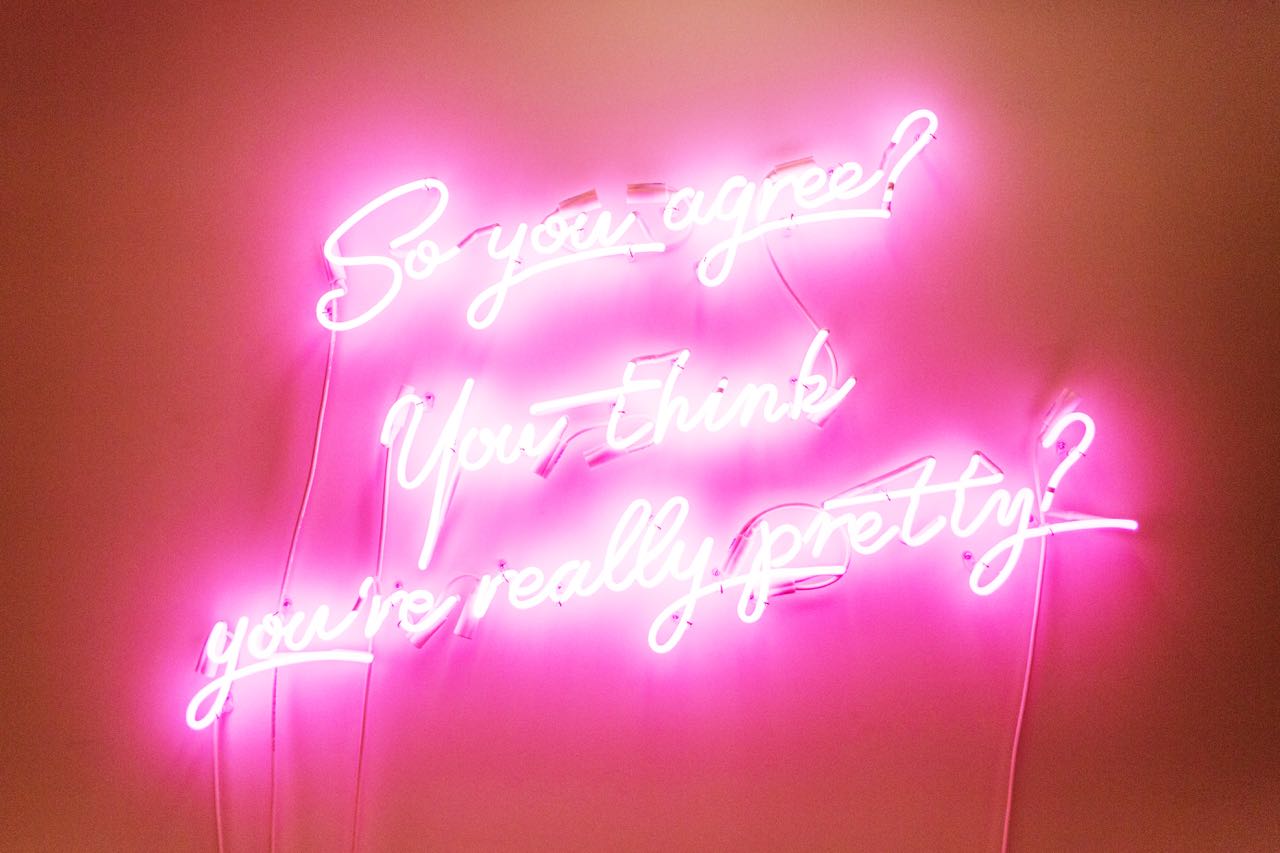
Sydney Morton
Sydney Morton was seen on Broadway in Motown and can currently be seen in the Netflix series She’s Gotta Have It. She recently started S+H, a company that plans wedding sendoff weekends.
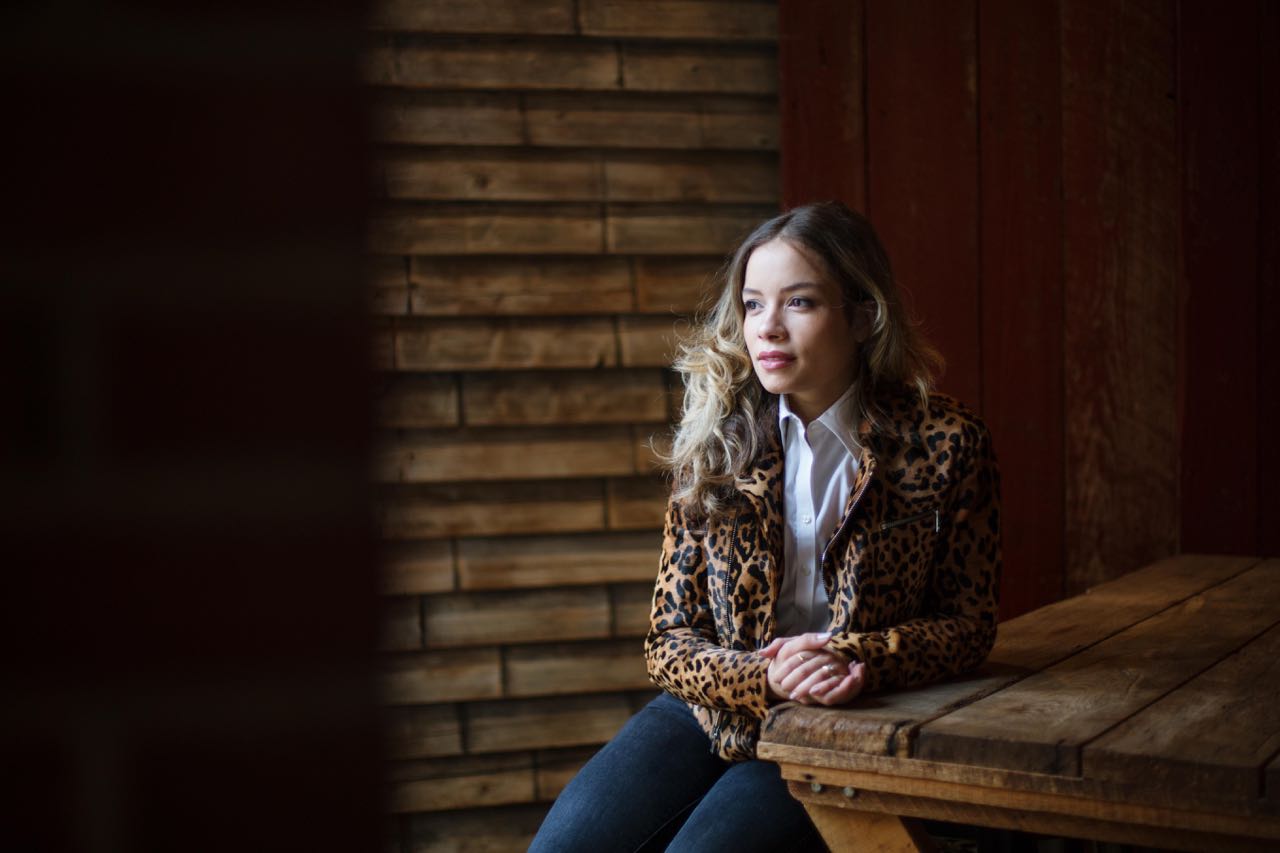
Tell me a little bit about S+H and how it got started.
I just got married a couple of months ago. My husband, Preston, is an actor in The Play That Goes Wrong. I’m an actor. Most of my friends are actors and/or live in New York and are really busy. So when it came time to start planning a bachelorette party, I really didn’t want to burden my friends with that because it was just an added responsibility and an added expense. I was like, “Look. If we all just hang out at some point, I’ll be happy.” We’re all really busy and trying to coordinate schedules also got really confusing for my maid of honor who’s my sister-in-law.
We ended up doing a bachelorette party out of town. It was so much fun. It felt like a sleepover out of town with all of my best friends. Making that event happen proved to be such an unforgettable experience. But I was saying to my sister-in-law, “You know if there were a company that did this in New York and made us feel pampered and created an experience for us in New York, so that we didn’t have to do any of the planning, I would have called that company. I would have paid someone to do something like that for us.”
We ended up doing a bit more research and we found that New York is one of the top bachelorette party destination spots, but there is no company that specializes in bachelorette or bachelor parties here. I was like, well, I have ten years of experience in the Broadway community, and my sister-in-law has seven years of experience in hospitality and the restaurant industry and events planning, and we could really combine our connections and our insider understanding of New York and make a business that does this. She’s actually engaged too. It was like, “Okay. Well, let’s test it out with you and your bachelorette party.”
One of the most memorable things that friends and family of ours always mention when they come to visit New York is that we can get them backstage tours with friends when they go see a Broadway show. The theatre connection really makes our company unique, in addition to the restaurant experiences and the nightlife experiences and ties to the art community at large in New York. That’s what we’re doing. We don’t call them bachelorette or bachelor parties, we call them “Wedding Sendoff Weekends.”
If you come in as a tourist, you’re going to leave feeling like you’re an insider—like you are a true New Yorker with the kinds of experiences you’ll receive. You’ll get two dinners, nightlife entertainment. There’ll be a whole day of activities as well, and they’ll be catered to the clients depending on their interests. If they’re into fitness, they can take a private lesson with a celebrity trainer or they can see a matinee and get a backstage tour. There are a lot of different things that we offer, and we customize it. It’s a surprise for the whole party and the whole weekend. No one has to be Googling or looking at Yelp or calling Ubers or anything like that. We take care of all of it.
I know you are just getting started, but what have been the challenges so far in getting the company up and running?
One of the challenges is every bride is different and some brides want their maid of honor to be in charge of this part of the wedding, or they want to be in charge of it if they’re a little bit more Type A and they want to have hands on every aspect of their engagement and wedding experience. It tends to be something that they put off until the last minute. I think your first thing that you try to do when you’re planning your wedding is get your dress and get your venue, and then it’s like you get to two months before your wedding and you start scrambling to do the shower or bachelorette party.
So a challenge for us, I would say, has been figuring out the perfect time in the planning process to approach a bride and her bridal party. It’s not necessarily at the big bridal expos because that’s almost too far in advance. They’re literally just figuring out what their color scheme is. So we’re trying to partner up a little bit more with bridesmaid boutiques and things like that, because once the bride is at that stage of planning, she’s a little bit more relaxed and can take on another pre-wedding event.
How do you balance all that with your career as an actress?
I really feel like it ties in because I am taking advantage of all my connections in the theatre. I’ve been here for about ten years. When you first move here, you just go in for everything people call you in for. I’m now at a point where I can be a little bit more selective with the kind of jobs that I want to do and roles that I’d like to take on. It’s actually been really great. This is the best kind of passion project and a lot of it can be done remotely, making phone calls and doing Skype interviews with our clients. So it hasn’t been too crazy yet.
As you grow, what are your goals in terms of what you want to do or people you want to reach?
One of the reasons that we don’t call ourselves a bachelorette or bachelor party company is because we really want to be able to throw these kinds of weekends for any occasion. To expand beyond the wedding market would be really exciting. I’m from Cincinnati, and Haley, my co-founder, is from Fargo-Moorhead in North Dakota, and there are a lot of cities that are growing. You look at places like Cincinnati or Asheville, North Carolina or Portland or Austin. These are cities that are growing and have a booming wedding industry and have a booming nightlife and restaurant industry, and I like the idea of planning these weekends in other cities as well, so that we can be a part of these growth periods and really partner with the young downtown scene in a lot of these other places. I know that there are brides who wouldn’t necessarily want to travel for their bachelorette, but deserve that VIP experience in their hometown.
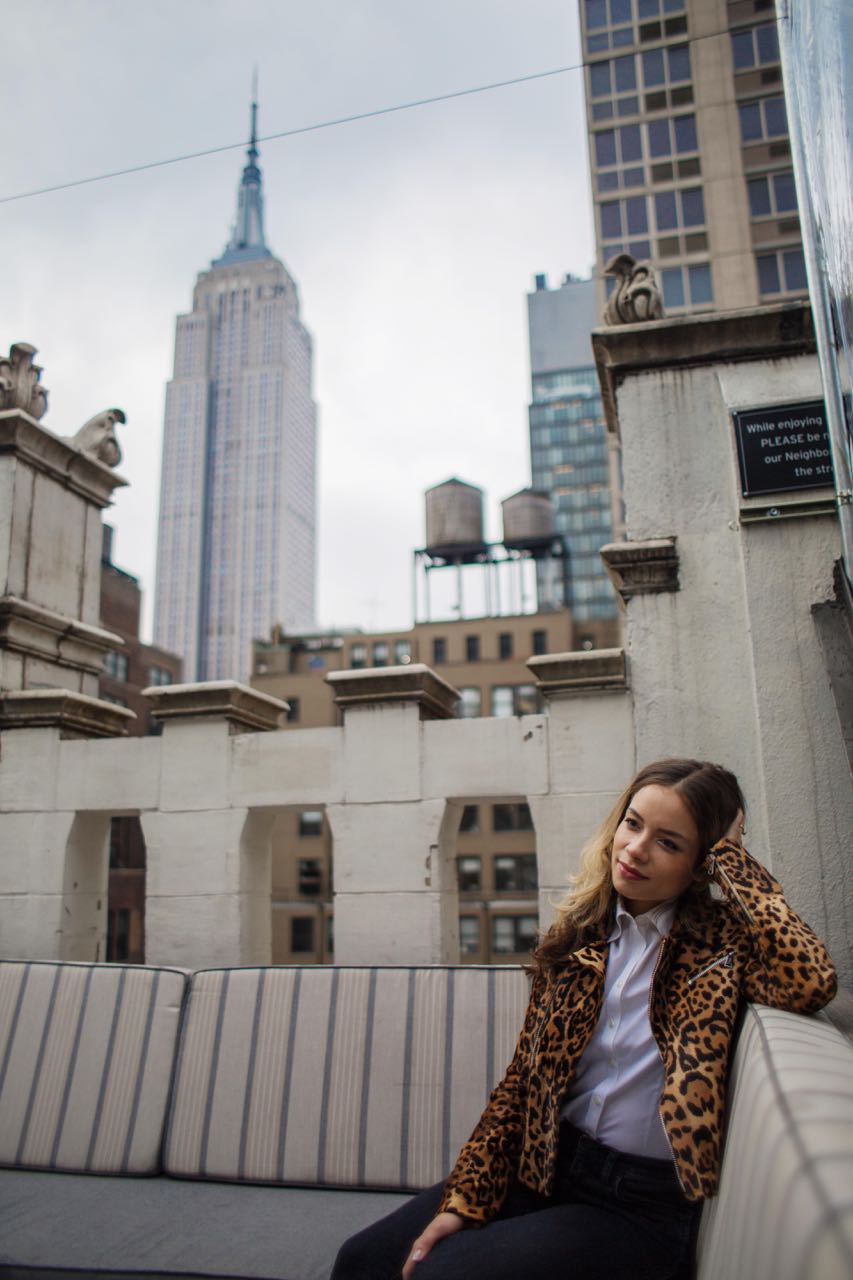
Jennifer Laura Thompson
Jennifer Laura Thompson is currently appearing in Dear Evan Hansen. She makes and sells her own jewelry, which can be purchased at the Music Box Theatre.
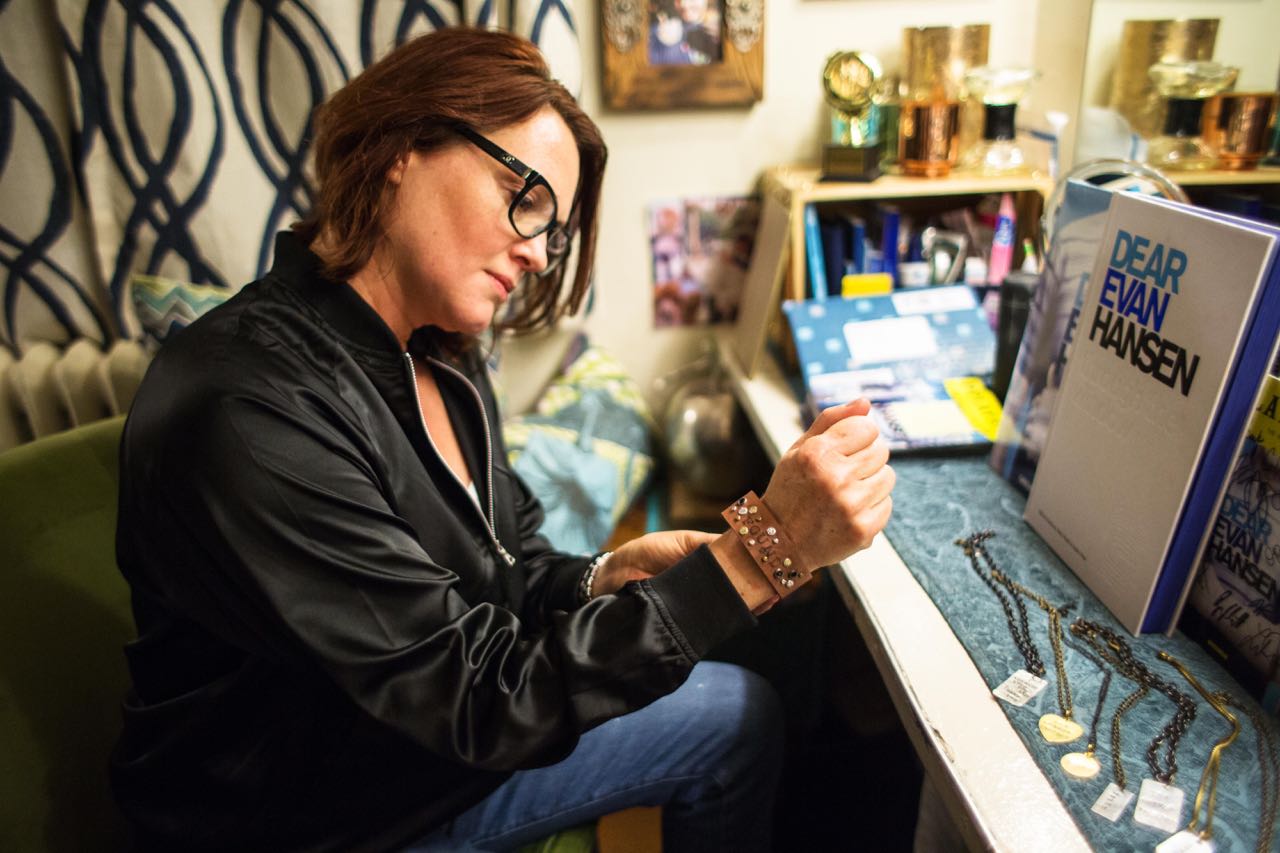
How did you get started making jewelry? And how did you decide to go about selling it?
I have always made my own jewelry. Throughout my life, I’ve been doing that as a hobby. Then at one point, I was selling in a boutique, because I was wearing one of my pieces that I had made, and the manager was obsessed with this necklace I was wearing. She said, “Where did you get that?” I said, “I made it.” She said, “I want to talk to you.” She wanted to sell my wares in her boutique. That was very short-lived, because I was in a Broadway show, and I couldn’t keep up with the demand of the jewelry sales.
That ended, and then I continued to do it as a hobby. About four years ago, I had this idea to do sort of anti-sentiment necklaces because I tend to be cynical as a person. I was so tired of seeing those repeated themes of, “Keep calm and carry on,” or any sort of romantic phrase or any sentiment that just felt overdone or cliché just really bothered me. I started to design charms that were the anti sentiment, meaning something that meant absolutely nothing at all. At the time, it was like, “username,” or “liked” was one of them, “verified.” Things that may have some meaning in life, but really don’t have any meaning at all. When Dear Evan Hansen came along, because of the social media and all of the phrases that pop off, I immediately started to brainstorm about charms that we could make for the show. I approached our lead producer, Stacey Mindich, and she very kindly hooked me up with their merchandiser. We met, and she loved the idea. I made my first batch, and it sold out immediately. She ordered a second batch. I got very excited.
Now, I have a weekly goal of necklaces to make. I could try to keep it at minimum, so that it doesn’t become another full-time job, but I have a weekly goal. I’m now using phrases from the show, as opposed to the phrases that I had thought up in the past.
How do you balance making the necklaces with also doing the show?
Sunday night, I’ll be home pounding out the charms. Monday night, I’ll be finishing them. Thursday, I’ll start a second batch. Twice a week I deliver them. It takes probably a total of two to three hours. I’ve gotten it whittled down to that by getting faster with my technique and finding ways to skip steps that are unnecessary. If I were to do this full-time, I’d be hiring a team of people to make them. It’d be loads of fun, but I don’t have the energy to do that right now.
How do you make them?
They’re hand-pounded. I’m going to say pounded because I use metal stamps. The charms are made of base metals. I chose that not only because it keeps the cost down, but because the message in the show is that we are all beautifully imperfect. All of the metals on each necklace are mismatched, including the clasp, the charm itself, or the necklace, the chain. They’re all varied base metals, and shades of gray and black and gold and a burnished brass color. I stamp the message very artisanally and imperfectly onto the charm.
Currently, we’re selling ones that say “found,” as in, “You will be found,” which is the finale song of the first act. I specifically do them imperfectly. Each one is unique in that vain, because it’s a message that, like I said, we are all beautifully imperfect. I don’t want any one to be the same, because none of us are.
They’ve been selling like crazy. I love that I get messages from people who’ve bought the necklaces, who just adore it, never take it off. It reminds them that perhaps they once thought they were an outsider, and now they feel like they’ve been found, for example. The other one is “loved,” which you see with the hearts on Instagram or on Facebook. How many hearts did I get? It’s such a meaningless competition to find some sort of popularity within this social media world. The message is “loved,” meaning, to everyone, no matter how many hearts you have, you are loved. There’s a little message that goes along with each. There’s a little placard at the station where they sell them that explains the meaning of it.
I think everyone brings their own meaning to it, anyway. I just love doing it. I love the message of the show. I love sharing this joy that I have in making the jewelry. I love that it is having an impact on people. My plan is to continue once I leave the show and open a store. Probably an Etsy shop to start, to keep it simple.
Do you find it helpful to have another creative outlet while you’re doing a show eight times a week?
I definitely do. I have all sorts of self-taught skills in many areas of art. I’d like to express myself in those ways. If I’m not making jewelry, I’m painting or drawing or redoing the living room or crocheting. There’s always something that is hands-on. A really important part of me life, as well as performing, is the tactile feeling of making something with my hands that I find the most calming. It’s good for that.
Going back to what you were saying before about wanting to open an Etsy shop, what are your plans for the future in terms of doing that and expanding?
It’s funny that it took me this many years for me to become an LLC, which is, in my mind, a big step. I am my own business now. There was a certain level of fear, for some reason, of doing it. Then I just jumped off the cliff and said, “Let’s just do it.” It was the inspiration of the show that helped me find the courage to just seize the moment. Stop waiting for something to happen.
The hope was that I would, at some point earlier on, have had the Etsy shop connected, so that people who can’t get to the show who want the jewelry can get it. The work here has been so overwhelming that I couldn’t keep up with what kind of demand I might get, which is super exciting, and also scary enough for me to just have to pull the reins in on expanding yet. Once I’m not working full-time, I will have the time to investigate and be able to open an Etsy shop. I hope that the show will share the information. I hope to continue selling here, and they’ll share the information on where they can find me. I can certainly share with my own fan base and connections that I have on my own.
The hope is that the shop will open soon after I’m finished here. I’ll start new lines of jewelry. I have all sorts of ideas. I always have something that I’m coming up with. It should be really fun. It’s never too late to do this, I learned. I felt foolish, at my age, being scared to take a step that I’ve wanted to do since I was a young adult. I’ve decided it’s never too late.
